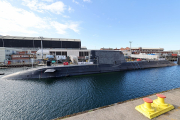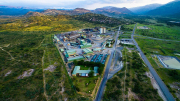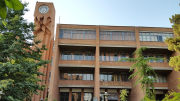
Hard-hit rail commuters face a greater-than-expected 6.2% hike in average fares in the new year after official figures revealed a shock rise in the inflation rate.
The retail prices index (RPI) figure for July, which is used to determine how much regulated rail fares including season and saver tickets are allowed to increase in 2013, rose to 3.2% from 2.8% the previous month, according to the Office for National Statistics.
The City had expected the rate to remain flat at 2.8%.
The average fare increase for England is calculated by adding 3% to RPI, meaning a hike of 6.2%, although some tickets can go up by a further five percentage points - or more than 11% - as long as they are balanced by cuts on other fares.
The greater-than-expected rise in RPI, which was accompanied by an increase in the closely watched consumer prices index (CPI) rate to 2.6% from 2.4%, was driven by hefty hikes in air fares, while there were fewer discounts from retailers who had already slashed prices in June to shift stock amid the wash-out weather.
The planned hike in average regulated ticket prices, which follows a similar increase for 2012, will mean that fares have risen by more than inflation for 10 years in a row. Governments in Wales and Scotland have indicated that regulated fares are likely to go up by one percentage point above RPI.
Unions, transport campaigners and rail passenger groups staged a day of action at railway stations across the country to protest against the "massive" hikes.
Stephen Joseph, chief executive of the Campaign for Better Transport, said the increases are "untenable" because fares will rise three times faster than salaries next year, which it claimed will damage the economic recovery. And unions said tens of thousands of rail commuters will have to pay more than £5,000 a year for their season tickets after the new rises come into effect.
Meanwhile, the rise in the rate of CPI brings to an end three months of falls, intensifying the squeeze on struggling families. The ONS said air fares, which are highly seasonal, rose 21.7% between June and July - the largest increase since 2004.
A Treasury spokesman said: "Inflation has halved since its peak in September but any increase is disappointing. The Government knows how tough things are for families at the moment and that is why we have reduced income tax, and frozen both council tax and fuel duty."
The Press Association, photo by myretailmedia








































